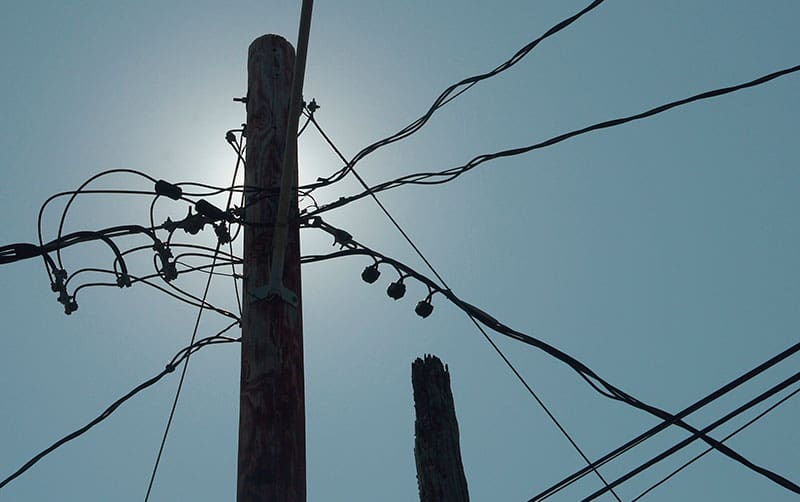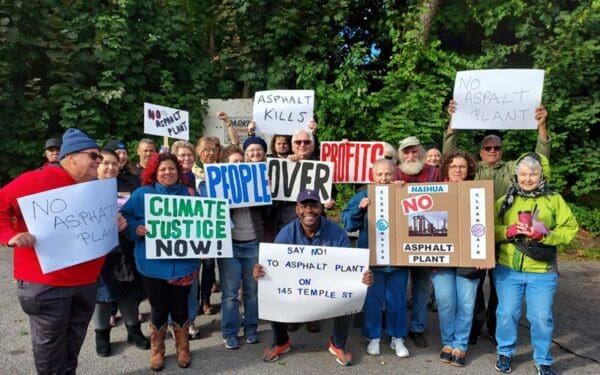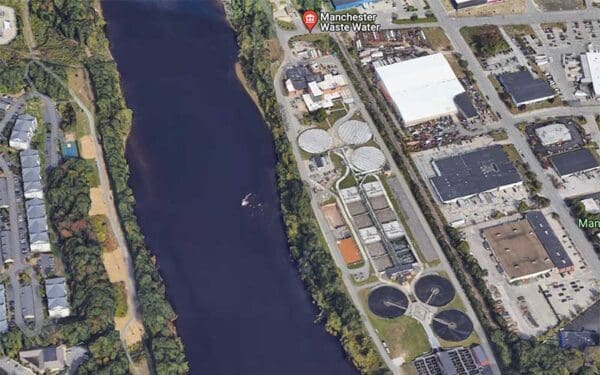
Voting yes on the referendum to create Pine Tree Power provides no certainty that this quasi-public utility would solve the myriad of problems we’ve come to expect from CMP and Versant. Photo: Andrew Hart CC-BY-SA-2.0-DEED
Next month, Mainers will vote on whether to replace the state’s two investor-owned electric utilities with a single publicly owned power company, Pine Tree Power. There’s no question that Central Maine Power (CMP) and Versant have performance, reliability, and customer service issues – issues their customers are, understandably, fed up with. Maine’s residents and businesses deserve clean, reliable, and affordable electricity.
However, voting yes on the referendum to create Pine Tree Power is not the answer. Question 3 provides no certainty that this quasi-public utility would solve the myriad of problems we’ve come to expect from CMP and Versant – especially as it would operate within the same regulatory framework as these current utility companies.
But we also cannot maintain business as usual. CMP and Versant must be held accountable for their failures, from their abysmal customer service to their slow response to the climate crisis. We can best do that by using the tools we already have to govern their operations and adding some new tools to that box. Here’s how.
Pine Tree Power Is No Silver Bullet
The theory driving the Pine Tree Power referendum is that a quasi-public utility – governed by a board of appointed and elected directors and operated by a contractor – would lead to better service, lower costs, and a better response to the climate crisis. However, we think that theory is unlikely to pan out.
- Our energy decisions in the next decade will directly affect our ability to cut climate-damaging emissions as mandated by Maine law. Those decisions must include investing significantly in clean energy resources and new transmission pathways. But if Question 3 passes, Pine Tree Power will get caught up in litigation for five to ten years. We cannot afford to lose a critical window of opportunity and investment in Maine’s clean energy future while lawsuits wend their way through the courts.
- Even without protracted litigation, the costs of transitioning to a publicly owned utility may require financial resources that could otherwise be used to fund necessary upgrades to our statewide grid and other electricity infrastructure – upgrades that will improve reliability and resilience in the face of increasingly severe climate impacts.
- The elected board that would govern Pine Tree Power will introduce another layer of politics into the operation and management of our electrical grid. That could mire critical decisions related to clean energy in partisan political maneuvering.
- Changing the ownership structure doesn’t necessarily mean a change in operations. The elected board members are not required to have any expertise in utility operations. And, the third party or parties that the board selects to manage the new utility is likely to come from the same investor-owned utility world as CMP and Versant.
“Business as Usual” Is Broken – But Ways to Fix It Already Exist
Mainers are rightly frustrated with their current electricity providers. They are also justifiably concerned about the growing climate crisis – and whether CMP and Versant have the motivation and means to lead Maine’s transition to a clean energy economy. We can and must enforce a higher standard of utility accountability that Mainers deserve – without the risk and uncertainty that the approval of Pine Tree Power would create. Here’s what we recommend:
- State officials must enforce and strengthen the Utility Accountability Law passed in 2022. The law requires the state to establish performance metrics to hold utilities accountable and enforce penalties when they fall short. The law can be strengthened by adding provisions for affordability, electric grid updates, transparency, and compliance with Maine’s climate laws. If CMP and Versant can’t meet these metrics, then they should face more significant financial penalties than currently in the law until they get in line, including revocation of their franchise to operate.
- Governor Mills should convene an advisory group focused on speeding up the process for new clean energy projects to connect to the grid affordably. That group should include four public members with expertise in clean energy generation, transmission, and distribution; the presidents of CMP and Versant; representatives from the renewable energy industry; a commissioner of the Public Utilities Commission; and the head of the Governor’s Energy Office.
- We must overhaul and lower the costs that utilities can charge families and businesses. The Utility Accountability Law made some good advances by banning CMP and Versant from charging Mainers for the costs of lawyers, lobbyists, marketing, and industry associations for actions that solely benefit the utility. But more must be done, such as not allowing utilities to pass along the substantial costs associated with proceedings where electricity rates are set.
- The Legislature should establish a permanent consumer advisory panel with members from across the state that is allowed to participate in the decision-making process at the Public Utilities Commission and is charged with providing an annual report to all utility customers. This will increase transparency into the utilities’ operations and decision-making.
Too Much at Risk – and Too Little Time
We’re at a critical point in Maine. The decisions we make today will determine how well we can respond to the climate crisis in the coming years.
Given the stakes, there is simply too much uncertainty around whether the Pine Tree Power referendum would solve the issues we’ve come to expect from CMP and Versant. Aggressively implementing and adding to the current systems to hold CMP and Versant accountable would be a far more certain way to make sure that these companies are delivering the affordable, reliable, and clean energy Mainers need and deserve.
Read our full analysis of Question 3 and our recommendations for moving forward.




